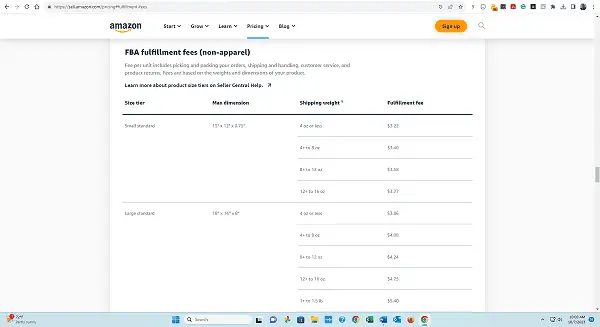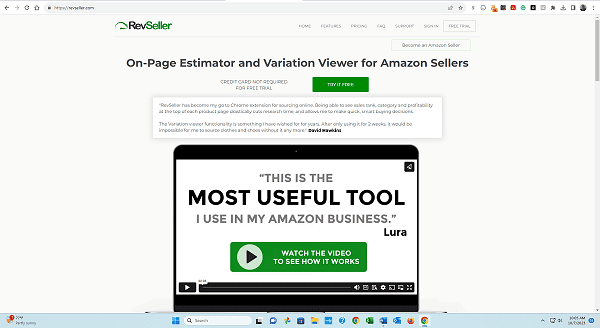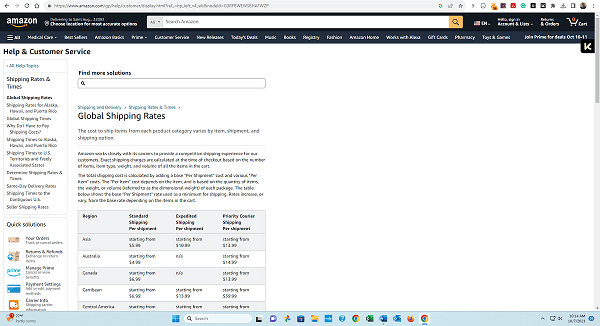The Ultimate Guide to Starting an Online Arbitrage Business in 2024

Imagine a business where you can capitalize on the price differences between online marketplaces. While effectively turning a profit from the comfort of your own home. Welcome to the world of online arbitrage in 2023! This comprehensive guide will walk you through everything you need to know about starting and scaling your online arbitrage business.
Key Takeaways
Start an online arbitrage business on Amazon with minimal investment and understand the legal aspects.
Choose a niche, source products, calculate profits accurately, and maximize profit margins to succeed online.
Overcome common challenges by adapting strategies and leveraging automation tools for scaling your business.
Understanding Online Arbitrage
Online arbitrage is a simple yet lucrative concept. It involves purchasing products at a lower price from one online marketplace and reselling them at a higher price on another. Such as Amazon, to make a profit. This business model has become increasingly popular as more and more people shop online. While creating numerous opportunities for new sellers to capitalize on price differences between online retail stores.
Finding profitable products that can be bought at a low cost and sold at a good profit margin is the key to succeeding in online arbitrage. The key element for success is to acquire items that will yield a profit on Amazon. By leveraging the vast array of online marketplaces, sellers can uncover incredible deals on products that are in high demand. Therefore making online arbitrage a viable and potentially lucrative business model.
Keep in mind that online arbitrage isn’t restricted to Amazon alone. Sellers can also explore other online marketplaces to find profitable deals and resell them on various platforms. However, Amazon has become the go-to platform for many online sellers due to its massive customer base and established infrastructure.
Legal Aspects of Online Arbitrage
One of the initial concerns that often arises when thinking about online arbitrage is whether it’s legal. You can be confident that online arbitrage adheres to legal practices. Also, buying products at a lower cost and selling them at a higher price is widely accepted. As well as a legitimate business practice. It’s important to note that online arbitrage is allowed on Amazon and other online stores and marketplaces.
However, sellers must comply with Amazon’s rules and regulations and stay informed about any applicable brand restrictions. Certain brands may disallow the sale of their products on Amazon through online arbitrage, such as Nike and Lego. These brands do not permit third-party sellers to resell their products on the platform. Additionally, this includes purchases from online retail stores. In some cases, Amazon may request invoices from approved suppliers before granting permission to list certain products online. Also an important aspect of running a successful business.
When it comes to reselling online arbitrage purchases on Amazon, sellers have two options. These are Amazon FBA (Fulfillment by Amazon) and merchant fulfillment. Both options are similar to retail arbitrage but are done online. Online arbitrage sellers need to comprehend the distinctions between these methods and select the one that aligns best with their business model.
Setting Up Your Online Arbitrage Business
Setting up your online arbitrage business doesn’t have to be complicated. With an internet connection, an Amazon Seller account, and a few free tools, you can begin sourcing and selling products online. The initial investment required to start a business on Amazon is usually less than $100, making it an affordable option for those looking to enter the world of e-commerce.
To start, you will need to create an Amazon Seller account. There are two types of seller accounts: individual and professional. An individual seller account is free of charge; however, there is a $0.99 fee per item sold and a 15% final value fee. A Professional Seller account costs $39.99/month and waives the $0.99 fee. It makes more economic sense to obtain a Professional Seller account once you surpass 40 sales per month.
Once your Amazon Seller account is operational, shift your focus to the fundamental aspects of online arbitrage such as selecting a niche, comprehending Amazon fees, and sourcing products. By mastering these key components, you’ll be well on your way to building a successful online arbitrage business.
Choosing a Niche
Selecting a niche can help streamline your product-sourcing activities. In addition to potentially leading to improved results in online arbitrage. By narrowing your focus to a specific niche, you gain access to niche opportunities and a dedicated audience. Also, this enables you to discover unique products, assemble bundles, or even create a brand identity within the niche.
Some of the most profitable niches for online arbitrage include:
Home & Kitchen
Toys & games
Books
Beauty & personal care
Grocery
These niches have high demand and potential for finding good deals. When selecting a niche, consider factors such as product profitability, sales potential, competition, costs, market trends, product quality, and niche specificity.
Understanding Amazon Fees
Comprehending Amazon fees is vital for precise profit calculation and effective management of your online arbitrage business. Amazon charges three main types of fees:
Referral fees: These are the commissions sellers pay to Amazon for selling their products on the platform. Referral fees can range between 6% and 45% of the product’s selling price.
Storage fees: These fees are based on the size and age of the product. They can range from $0.15 to $6.90 per unit or per cubic foot, depending on the circumstances.
Fulfillment fees: These fees are charged when Amazon handles the storage, packaging, and shipping of your products. The exact amount depends on the size and weight of the item.
Understanding and accounting for these fees is crucial for accurately calculating your profits and managing your online arbitrage business effectively.
Amazon’s fulfillment fee covers the cost of locating, labeling, and delivering items to customers and is determined based on the item’s weight and dimensions. To ensure you are calculating your profits accurately, it’s essential to consider all these fees, as well as additional costs such as shipping costs and taxes, when sourcing products for your online arbitrage business.
Sourcing Strategies for Online Arbitrage Sellers
Sourcing the right products is a critical aspect of a successful online arbitrage business. There are two popular sourcing strategies for online arbitrage sellers, manual sourcing and reverse sourcing. Each has its own advantages and challenges. Therefore by mastering these sourcing techniques, you can effectively locate profitable products, increasing your chances of success in the world of online arbitrage.
Manual sourcing involves searching for discounted products on various online marketplaces, such as Alibaba, Lowes, and Walmart.com, and comparing them to Amazon prices. This method enables you to locate products to sell based on profit, revenue, and other significant metrics.
On the other hand, reverse sourcing entails starting with a product on Amazon and tracing its source. This method often involves using tools and extensions such as Tactical Arbitrage to find profitable products already listed on Amazon, and then sourcing them from other online retailers.
Manual Sourcing
Manual sourcing allows online arbitrage sellers to explore the market without investing in tools or software. By searching for discounted products on various online marketplaces, such as:
Alibaba
Lowes
Kohls.com
Walmart.com
Sellers can uncover profitable deals and capitalize on price differences.
To ensure an exact match between products on retail websites and Amazon, you can follow these steps:
Search the product name on Amazon.
Compare the results to the product on the retail website.
Alternatively, use a UPC code to verify that the product you are sourcing is the same as the one listed on Amazon.
Reverse Sourcing
Reverse sourcing offers a more streamlined approach to finding profitable products by starting with a product already listed on Amazon and tracing its source. Using tools and extensions such as Tactical Arbitrage, you can assess a product’s competition level and profitability potential by examining:
Seller count
Net margin
Product score
Sales performance
The list of retailers provided by Aura Repricer and the AMZScout PRO Extension can help sellers in finding products to source. These tools can also assist sellers in evaluating the competition and profitability of a product, making it easier to identify potential deals and streamline the sourcing process.
Essential Online Arbitrage Tools for Success
To boost your success in online arbitrage, employ essential tools that save time. In addition to enhancing efficiency, and aid in avoiding expensive errors while procuring inventory is advisable. Also, product research tools, price tracking extensions, and profit calculators are just a few examples of tools that can enhance your online business experience.
The Amazon Seller App is a valuable resource for online retailers, allowing them to quickly determine if a product is eligible for sale and make informed decisions. Keepa is another essential tool, offering comprehensive price history charts for a wide variety of products available on Amazon.
By leveraging these tools and others like RevSeller.com and the Amazon On-Page Revenue Calculator. You can effectively navigate the world of online arbitrage. While making more informed decisions and ultimately increasing your chances of success.
Calculating and Maximizing Profits
The success of online arbitrage is largely dependent on precise profit calculations and efficient strategies for maximizing profit margins. Therefore, to estimate potential profit, considering all costs including:
Product cost
Shipping
Taxes
Amazon fees
The RevSeller Chrome Extension is an effective tool for calculating potential profit, allowing you to assess the rate of return and net profit margin associated with a specific deal. By understanding these metrics, you can make more informed decisions when sourcing products and ensure that you are only purchasing inventory that will yield a profit on Amazon.
To maximize your profit margins, consider using coupon codes, cashback sites, and other strategies to lower product costs and increase returns. In effect, by implementing these tactics, you can effectively increase your profits and grow your online arbitrage business.
Accurate Profit Calculation
For precise profit calculations in online arbitrage, considering all costs relating to sourcing, selling, and fulfilling your products is vital. This includes:
Product cost
Shipping
Taxes
Various Amazon fees, such as referral, storage, and fulfillment fees
By using tools like the Amazon Profit Calculator and incorporating accurate cost data in the Cost of Goods Sold section, you can obtain a clear picture of your potential profit for each product sold. Having this information readily available allows you to make informed decisions when sourcing products and helps to ensure that you are only purchasing inventory that will yield a profit on Amazon.
Maximizing Profit Margins
In addition to accurate profit calculation, maximizing profit margins is equally important for the success of your online arbitrage business. One effective strategy for maximizing profit margins is to utilize coupon codes, which can provide significant discounts on products, thereby reducing your inventory costs.
Cashback sites are another valuable resource for online arbitrage sellers, offering a percentage of your total order as a cashback rebate. By leveraging these sites, not only can you achieve additional savings on your product purchases from brick-and-mortar stores, but also further increase your profit margins when shopping at an online store.
By consistently seeking out ways to reduce product costs and maximize returns, you can effectively grow your online arbitrage business and increase your profitability with the help of online arbitrage pros.
Managing Inventory and Fulfillment
Effective management of inventory and fulfillment is an integral part of a successful online arbitrage business. Therefore, as an online arbitrage seller, you have two options for order fulfillment: self-fulfillment and Amazon FBA. Choosing the right fulfillment method for your business depends on your individual needs and preferences.
Self-fulfillment involves storing, packing, and shipping products yourself. This option allows for expedited product testing but may require more time and effort on your part. On the other hand, Amazon FBA (Fulfillment by Amazon) is a service offered by Amazon that handles the storage, picking, packing, and shipping of your products to customers. Utilizing Amazon FBA can save you time and effort, as you won’t need to worry about shipping logistics or maintaining a large inventory at home.
Bear in mind that when using Amazon FBA, products must adhere to Amazon’s labeling and stickering guidelines before being dispatched to an Amazon fulfillment center. Furthermore, it’s necessary to inspect the goods for consistency with the Amazon product listing prior to dispatching them to the fulfillment center.
Overcoming Common Challenges in Online Arbitrage
Despite its profitability potential, online arbitrage comes with its own set of challenges. Common issues faced by online arbitrage sellers include:
Unrealistic expectations
Inadequate research
Engaging in price competition
Failing to utilize available online resources
Overcoming these obstacles demands persistence, thorough research, and strategy adaptation.
By continually refining your sourcing strategies and consistently researching the market, you can increase your chances of uncovering profitable deals and staying ahead of the competition. Utilizing various online arbitrage tools can also significantly enhance your research capabilities and help you navigate the challenges of online arbitrage more effectively. Some recommended tools include:
Seller Assistant App
IP-Alert by Seller Assistant
Keepa
Tactical Arbitrage
Bear in mind that achieving success in online arbitrage demands time, effort, and commitment. So, by remaining persistent, learning from your mistakes, and adapting your strategies, you can overcome the challenges of online arbitrage and build a thriving business.
Tips for Scaling Your Online Arbitrage Business
Expanding your online retail arbitrage business can considerably boost your profits and foster growth. For effective scaling, consider the following strategies:
Automate processes to streamline operations and save time.
Employ advanced tools to enhance efficiency and productivity.
Broaden your product range to attract a wider customer base. By adopting these strategies, you can streamline your operations, focus on sourcing more profitable products, and facilitate business expansion.
Automation can be achieved through the use of advanced tools, such as Tactical Arbitrage, which can help streamline the sourcing process and uncover profitable deals more efficiently. Expanding your product range can also contribute to business growth, as it increases your inventory, streamlines processes, leverages expertise, expands reach, and scales customer support.
By focusing on these key areas and continually refining your strategies, you can effectively scale your online arbitrage business. As well as increase your profits, and achieve long-term success in the world of e-commerce.
Summary
In conclusion, online arbitrage presents a lucrative opportunity for those looking to capitalize on the price differences between online marketplaces. By understanding the legal aspects, setting up your business, mastering sourcing strategies, utilizing essential tools, calculating and maximizing profits, managing inventory and fulfillment, overcoming challenges, and scaling your business, you can build a thriving online arbitrage operation. The journey to success may not be easy, but with persistence, research, and the right strategies, the world of online arbitrage can offer a wealth of opportunities for those willing to take the plunge.
Frequently Asked Questions
What is online arbitrage?
Online arbitrage is the process of buying products online to resell them at a higher price for a profit on another marketplace, such as Amazon, eBay, or Facebook.
Can you make money doing online arbitrage?
Yes, you can make money with online arbitrage. You can source products online as well as in-store to find great resale opportunities.
How much do you make online arbitrage?
Online arbitrage can be extremely profitable, with profit margins of up to 30% and the potential to make over $10,000 per month. You don’t have to physically shop – simply buy online from other stores and marketplaces.
Is online arbitrage legal?
Online arbitrage is legal and an accepted business practice. It involves buying goods at a lower price and selling them for a higher price.
What are the two most commonly used sourcing strategies for online arbitrage sellers?
The two most commonly used sourcing strategies for online arbitrage sellers are manual sourcing and reverse sourcing.
Disclosure: Some of the links in this article may be affiliate links, which can provide compensation to us at no cost to you if you decide to purchase. This site is not intended to provide financial advice. You can read our affiliate disclosure in our privacy policy.










